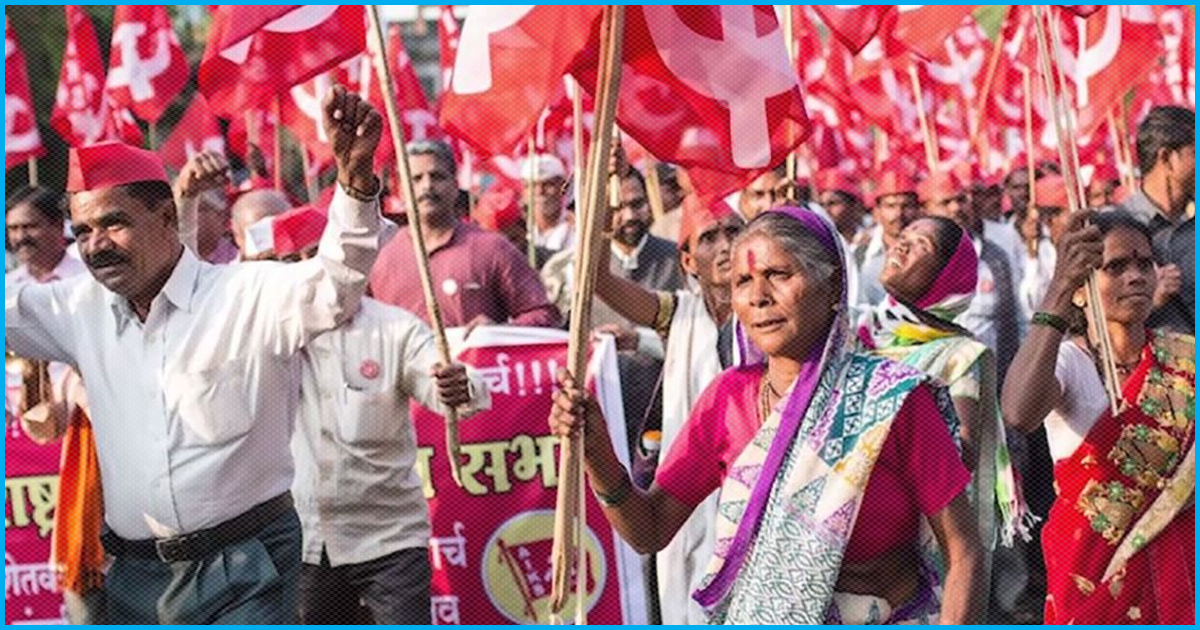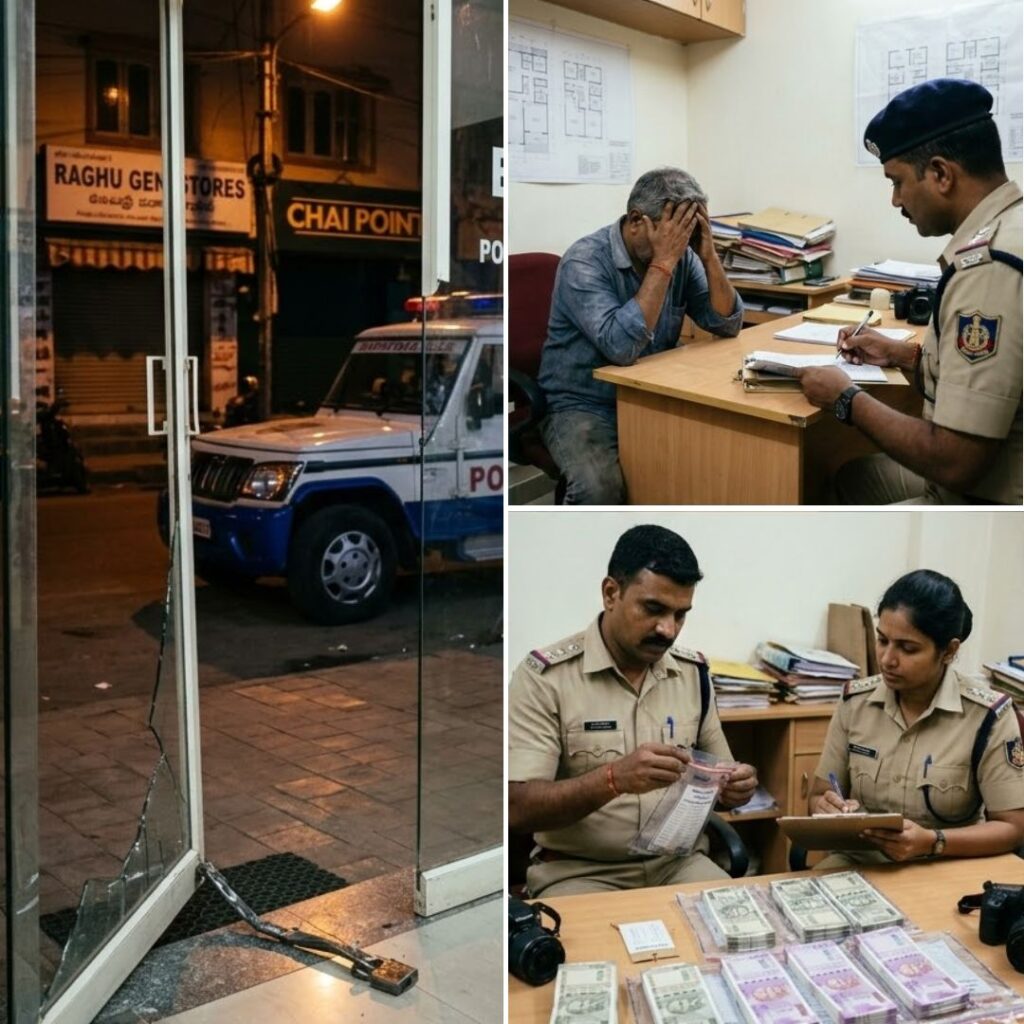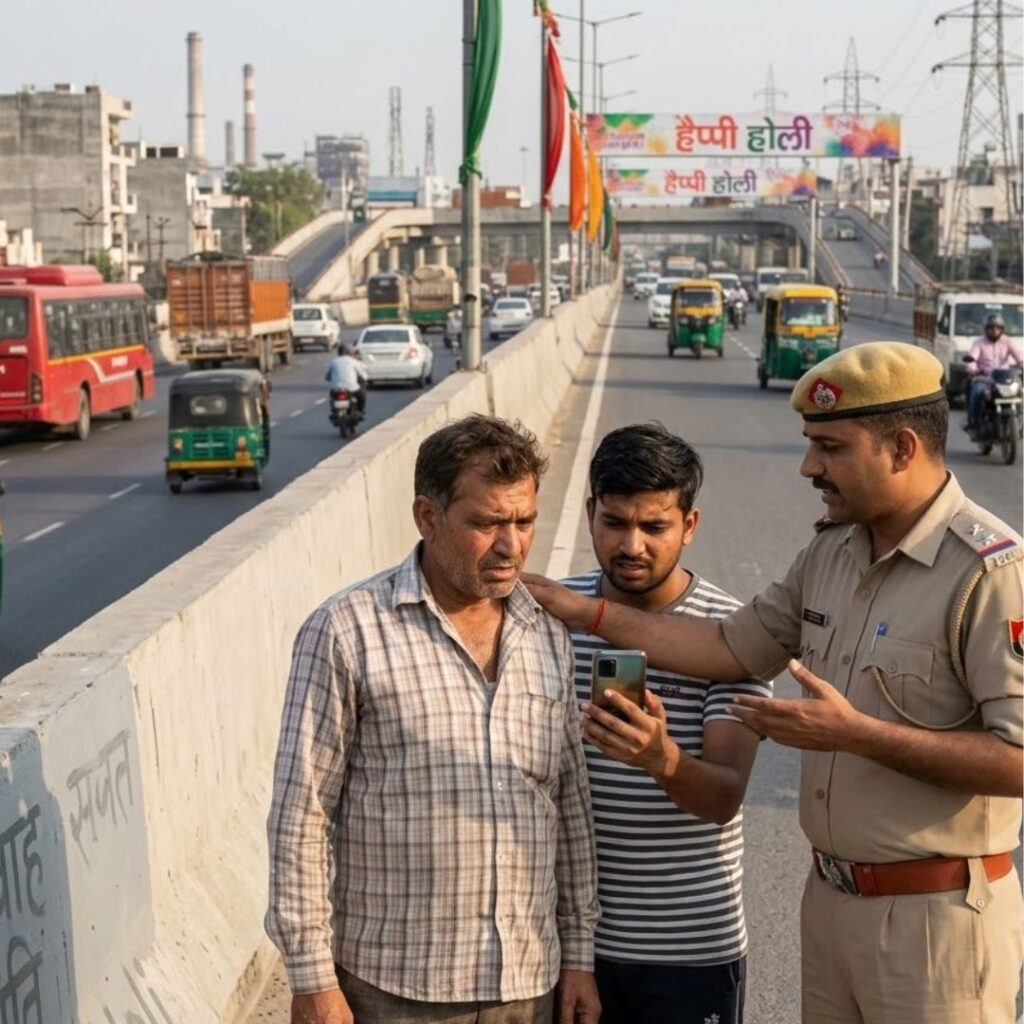Thousands of farmers are out on the streets of the national capital, chanting slogans of, “Dilli Chalo” and “Ayodhya nahi, karz maafi chahiye”. These farmers with whose vote many leaders have been elected, are now on the road protesting and demanding their rights from our leaders. Reportedly, more than 2 lakh farmers from all across the country have come together under the banner of Left-backed All India Kisan Sangharsh Coordination Committee (AIKSCC). The farmers, who started their march from Ramlila Maidan towards the Parliament, have clearly made a few demands which include a total loan waiver, implementation of Swaminathan recommendations and a special session in the parliament to discuss the prevailing rural distress in the country.
According to The Indian Express, the rally is “one of the largest congregations of farmers” in the recent past. The outfit of farmers and agricultural workers AIKSCC, which is an amalgamation of more than 200 farmer organisations from across the country have organised the protest. They said that the demonstration is a peaceful protest to put an end to the agrarian crisis in the country.
Delhi: Farmers from all across the nation hold protest for the second day over their demands of debt relief, better MSP for crops, among others; latest #visuals from near Barakhamba Road. pic.twitter.com/Po5aGAhuSk
— ANI (@ANI) November 30, 2018
The agrarian crisis has a catastrophic impact on the livelihoods of many who are associated with agriculture. The crisis is not very demographic specific, but some states have faced the extreme wrath of the crisis. In an attempt to raise their voice against the on-going distress, protestors have come from Andhra Pradesh, Gujarat, Madhya Pradesh, Maharashtra, Tamil Nadu, West Bengal and Uttar Pradesh, as reported by The Indian Express.
The sea of farmers with red flags started their march on November 29, and the two-day march reached the Parliament street on November 30 in the afternoon. After the protestors were denied permission by the Delhi police to rally on the parliament street, around 35,000 assembled farmers, were addressed by their leaders near the Parliament Street Police station.
The Delhi police made elaborate arrangements, in order to maintain law and order in the national capital.
Delhi: Farmers from all across the nation hold protest for the second day over their demands of debt relief, better MSP for crops, among others; latest #visuals from near Jantar Mantar pic.twitter.com/zwnHQHALkk
— ANI (@ANI) November 30, 2018
Support for all walks of life
It’s not just the farmers who have gathered in Delhi, but many other people have joined the protest also extend their support and solidarity to our farmers. Students, lawyers, doctors, artists and activists in large numbers turned up to encourage and comfort farmers in the cold weather. Many mobilised food, medicine and shelters for the protestors.
Pragati Maidan construction workers holding pamphlets and watching the farmers march go past. "Our families back in Bihar also work on the fields and face the same issues," says one man. #KisanMuktiMarch pic.twitter.com/xrCJRWzPR7
— Priscilla Jebaraj (@prisjebaraj) November 30, 2018
Salute to these young doctors, who
have come to support our Farmers all
the way from Aligarh. Ramlila Maidan
Delhi #KisanMuktiMarch#FarmersMarch #FarmersProtestpic.twitter.com/AIDFOtCE0m— Abhishek Kumar (@_kehkelunga) November 30, 2018
At least five Gurdwaras extended their support in providing food and shelter for the farmers who marched for more than 36 hours in Delhi. While talking to the Indian Express, Atul Anjaan, leader of All India Kisan Sabha (AIKS) said that Delhi Jal Board had decided to provide them with water tanks and AAP local MLAs gave food packets. A group of 20-30 doctors also lent their support to the farmers by taking care of their medical aids.
Activist and Jai Kisan Andolan’s president, Yogendra Yadav who was present at the protest said, “This is an opportunity for us to compel the government to listen to the woes of farmers and hold a special session for farmers in Parliament.”
Delhi chief minister Arvind Kejriwal and Congress president Rahul Gandhi met the farmers in the afternoon on November 30. Other leaders from political parties also joined the agitation.
Arvind Kejriwal at farmers’ protest in Delhi: Five months are left, I demand that the Central Govt implement Swaminathan report. Warna 2019 mein ye kisaan qayamat dha denge pic.twitter.com/wkTyPJgA1n
— ANI (@ANI) November 30, 2018
Opposition leaders including Rahul Gandhi, Arvind Kejriwal and Farooq Abdullah at farmers protest in Delhi pic.twitter.com/ThHeMKGrpm
— ANI (@ANI) November 30, 2018
CPI (M)’s Sitaram Yechury at farmers’ protest in Delhi: BJP, Modi & RSS have only one weapon in hand that is Ram Temple. As the elections are approaching, they have started chanting ‘Ram Ram’. pic.twitter.com/D3Ht1rOeuT
— ANI (@ANI) November 30, 2018
Farmers whopping for their demands
The farmer protestors in Delhi are demanding for one-time unconditional debt relief. With an increased minimum support prices (MSP), the farmers are also demanding the government to approve a special session of Parliament to discuss the two bills proposed by the AIKSCC and the on-going crisis. The two bills are- the freedom from indebtedness bill and a bill to guarantee remunerative MSP.
Journalist and activist, P Sainath, who is actively participating in the farmer protest criticised the government for not paying attention to the farmers. While talking to The Quint, he said that to pass GST a midnight session was done by the government. He alleged that while the first draft of the Swaminathan Commission report came in 2004, and the last report came in 2006, but in the last 14 years, the government has not discussed the rural districts for even one hour in the parliament.
Security and traffic arrangements
There have been reports that due to the farmer protest the traffic situation in central and Lutyens’ Delhi was a bit unmanageable. However, additional traffic police were deployed to control the situation.
Deputy commissioner of police Madhur Verma told ANI that multiple rounds of talks were done by protesting farmer leaders, following which they were given permission to move to Jantar Mantar with “conditions”.
He further said that “Proper arrangements have been made for security, traffic and law and order. We hope that farmers will follow the conditions,” he said.
Deputy commissioner of police (New Delhi) Madhur Verma on farmers’ protest: Delhi Police held multiple rounds of talks with farmers’ leaders & gave permission for rallying from Ramlila Maidan to Jantar Mantar, with conditions. We hope that they’ll follow the conditions pic.twitter.com/xBh2MPSo8N
— ANI (@ANI) November 30, 2018
Traffic Alert
Traffic movement is closed on Sansad marg due to demonstration.Kindly avoid the stretch.
— Delhi Traffic Police (@dtptraffic) November 30, 2018
The residents of Delhi have been asked to check the Delhi police and Traffic police’s Twitter and Facebook page for more detail regarding the traffic situation, as reported by The Quint. According to the reports, Delhi police deployed at least 3,500 personnel deployed along different routes. Some 850 police personnel were deployed in the Central district.
In the last three months, many marches have taken place
The unending agrarian crisis in India is one of the major problems due to which lakhs of debt-ridden farmers have lost their lives. The farmers, reeling under the crisis have staged many protests in the last 18 months.
In March this year, several farmers protested from Nasik to Mumbai. The march saw an unprecedented support from the common-urban folks. In September, All India Kisan Sabha’s staged a protest in Delhi and in October Bhartiya Kisan Union held an agitation.
The agrarian crisis has been a vital cause of worry for several decades. Small land holdings, low prices for their crop, irrigation based on weather, have caused farmers some major losses, further pushing farmers into cyclical debt. Due to burdening debt, many farmers have committed suicide in the past.
Just in Maharashtra alone, the number of farmers, who have committed suicide from 2001 to October 2017 is 26,339. Of them, 12,805 farmers killed themselves due to the failure of crops, indebtedness and insistence on repayment of the loan. This is the data given by Revenue Minister Chandrakant Patil in the Maharashtra assembly. In the past, farmers have staged many protests in different parts of the country to demand help from the government.
The logical Indian extend our support to our farmers, and we hope the government also pays proper attention to them.












